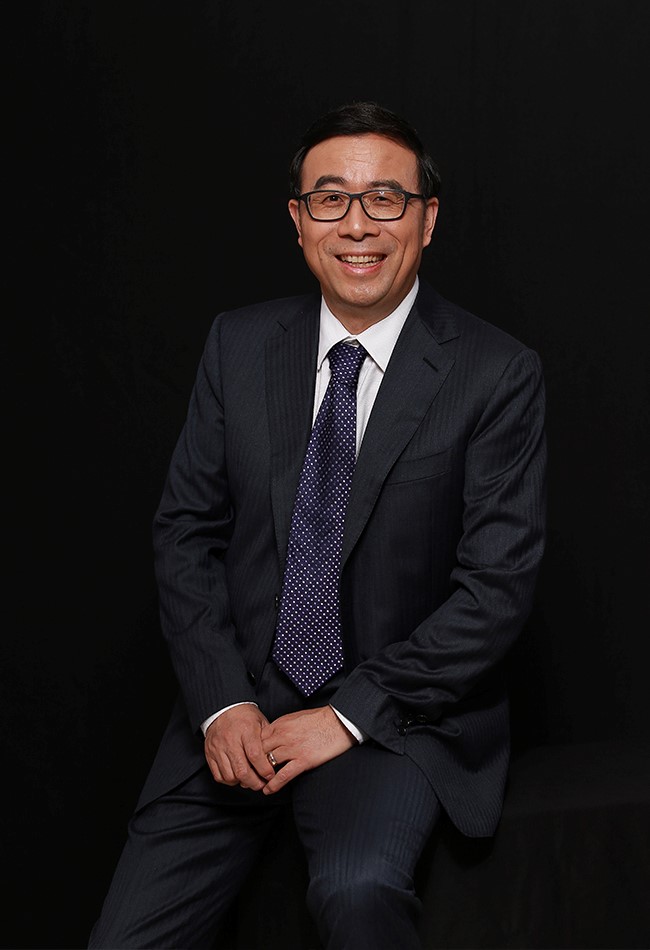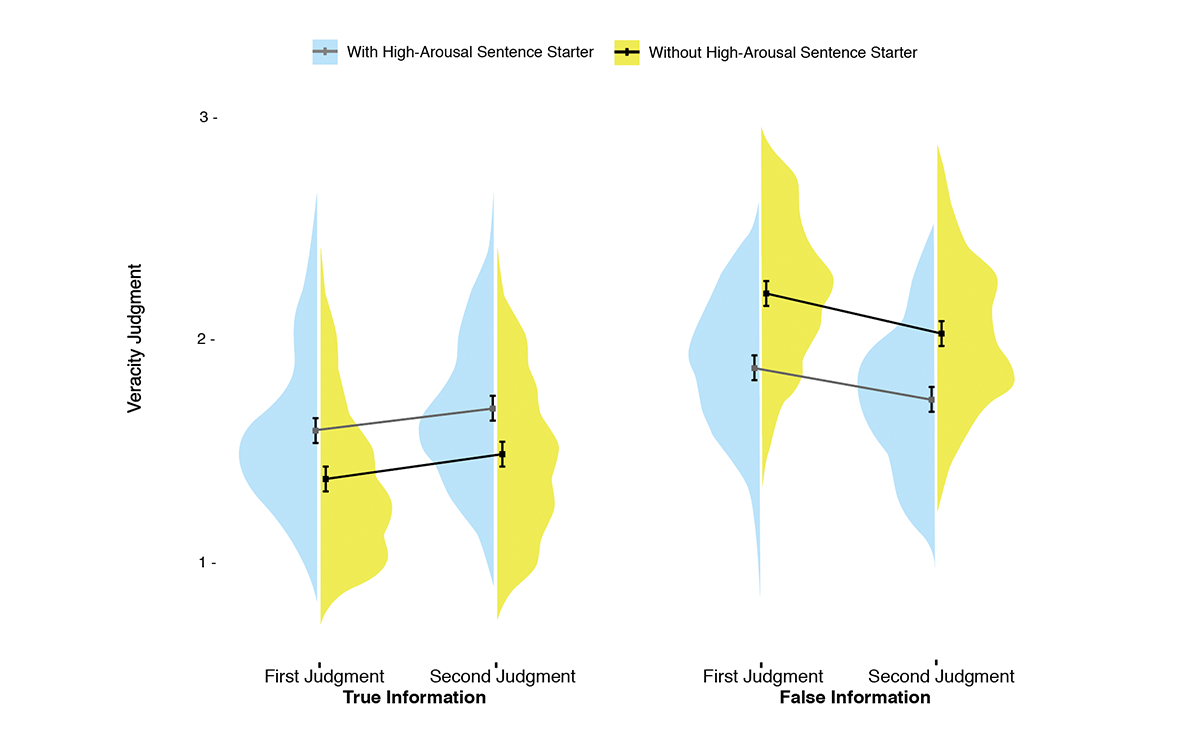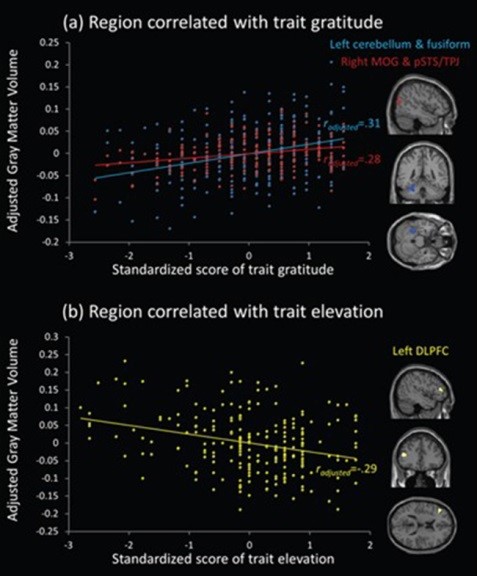Kaiping Peng designed much-needed social wellbeing support tools for those facing crises in the pandemic.

Professor Kaiping Peng runs Tsinghua University's Tsinghua Happiness Technology Laboratory (H+Lab). He is also Dean of the School of Social Sciences and Chair of the Department of Psychology.
Early in the COVID-19 pandemic, social media was making 18 to 30-year-olds more anxious about the crisis. “We found the more people used social media, the more uncertain they felt, particularly in that age range,” explains Kaiping Peng, an expert in ‘positive psychology’, a field that focuses on how to support psychological wellbeing across large groups. As well as leading a number of departments at Tsinghua University, Peng, who was once the world's most cited social psychologist at his level, heads the Tsinghua Happiness Technology Laboratory (H+Lab).
His team's social media study was among a flurry from the lab that revealed that anxiety about the world's crisis was likely heightened by modern communication. At the apex of China's outbreak, a nationwide survey of roughly 53,000 people, suggested more than a third of the Chinese population was experiencing symptoms of depression, anxiety, insomnia or acute stress.
In January 2020, on the first night of Wuhan lockdown, Peng was called in to discussions on preparations for a government-supported psychological assistance hotline. His experience working on post-traumatic relief efforts after the 2008 Sichuan earthquake, and SARS and MERS outbreaks in East Asia, suggested that timely intervention is essential not just for those directly affected, but also the general public's sense of shared security and empathy. “In contrast to psychiatry for patients in need, positive psychology targets the general public,” Peng explains.
Within a fortnight, he had mobilized hotline volunteers with a background in psychological studies. This eventually included 23 clinical psychologists, 186 research supervisors and 2,836 research assistants. Alongside 3,453 volunteers, the group undertook training in counselling and how to support healthy individual strengths and behaviors.
The first hotline set up was for medical staff in Wuhan hospitals, and it was later extended to their families, and then more widely to Chinese nationals and students. An English-language line was even established for foreigners in China. To date, Peng's team have received 14,322 hotline calls, and successfully counselled 154 people who expressed suicidal intentions. “These hotlines are part of our concerted efforts to identify and assist populations most susceptible to psychological risks, from native Wuhan citizens to the COVID-19 generation growing up in this pandemic,” explains Peng.
The rise of social psychology
Peng was tenured at the University of California, Berkeley, until he moved to Tsinghua to re-establish their Department of Psychology in 2008. Initially, he moved for a short stint, but was persuaded to make the move permanent. In 2014, Peng presented the findings of a study that canvassed 200-million people on their mood to the United Nations in New York. The study is considered perhaps the largest of its kind ever conducted.
The results combined variables such as education levels and crime rates with big data on linguistic factors to identify the five happiest cities in China. According to Peng, each is traditionally rich in Chinese history and culture, has a government that follows ‘happy city’ policies that include concerted efforts at positive language in official communication, and is in a medium financial situation, that is neither extremely rich nor poor.

In one study, H+Lab found that when participants judged information after a time delay, their belief in true information decreased and their belief in false information increased.On the veracity judgment scale, 1 indicates participants think it's true, 2 indicates not sure, 3 indicates false.
More recently, Peng has focused on issues brought to the fore by the pandemic, assessing the effect of phenomena such as ‘the sleeper effect’, a theory on long-term cognitive vulnerability to fake news. First proposed by American psychologist,Carl Hovland, the sleeper effect describes how the persuasiveness of a poorly credible message increases over time. “Consistent with the sleeper effect, participants in a recent study exhibited a delayed but significant increase of arousal towards false information over the course of the pandemic, which was linked to increased anxiety,” Peng explains. “This finding highlights the importance of timely intervention to clarify unscientific claims.”
Both studies underline the importance of governance to a general sense of wellbeing across populations, Peng points out.Indeed,the pandemic has opened the door to the use of positive psychology as a large-scale crisis management tool. “Today we are focusing on putting social psychology theories into practice, including amassing volunteers to take part in arguably the biggest psychological campaign of Chinese history, with 13 hotlines working 24/7,” notes Peng.
The hard science on feeling good
Peng and his team are also looking at the outcomes of the pandemic and asking key questions that include: how do we best evaluate human resilience to enclosure, isolation, and exposure long-term to negative information; how do cross-cultural responses to the pandemic differ, and what effect does this have on collective action; what have the effects been on child development and family relationships; and, how can we optimize employee health and teamwork while working remotely.
Based on these findings, the H+Lab are developing support technology that integrates bioengineering and big data on psychological indicators, including online platforms that provide psychological tests and positive psychology-based exercises.
Some exercises will stem from Peng's prior work on neural correlations. Specifically, brain scan studies that show how the activation of the dorsolateral prefrontal cortex in the prefrontal brain links to self-criticism. He has recently followed this up with studies that demonstrate how self-care interventions, such as meditation and guided writing exercises, can reduce the negative emotions and anxiety felt by study participants.

MRI and questionnaires have been used to identify the common and distinct neuroanatomical correlates of the traits of gratitude and elevation (the uplifted feeling that people experience when they see unexpected acts of human goodness.
This research has also informed the ongoing development of a self-monitoring program to track facial expressions via selfies and videos, as part of a comprehensiveself-assessment system to identify underlying emotional currents.“For these studies we ensure confidentiality,” Peng emphasizes. “You have the right to withdraw any time without any consequences.” The early detection of psychological distress using this type of technology could be game-changing, he adds.“People are often not consciously aware of their own changing outlook until a crisis point is reached.”
"Government can play a big role in supporting a sense of wellbeing across its population," Peng concludes. While academic tenure in the United States is notoriously difficult to achieve, he made the move back to China because he felt that there was the support and scope for his work to make a huge difference. The pandemic has only further reinforced this belief, he says.“As we enter the post-pandemic new normal, our ongoing efforts to support public welfare will put our theories to good use.”